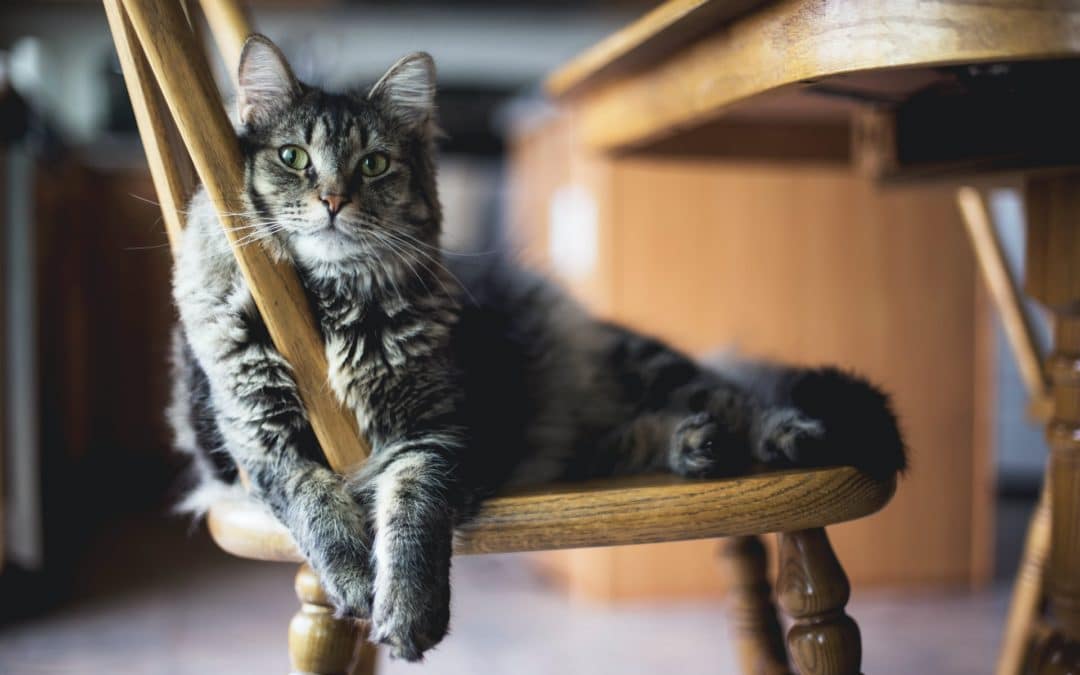If you have a cat, keeping them safe and healthy is your top priority. As much as we wish it were true, our feline friends don’t really have nine lives. There are many highly contagious, often fatal diseases that threaten the lives of outdoor cats. And while keeping your cat indoors will help keep them safer, there’s no guarantee they won’t eventually escape and get exposed to these diseases. The best way to keep your cat happy and healthy is to keep up with their annual vaccinations. In this blog, we’ll explain which vaccines your cat needs yearly, depending on their lifestyle.
What Vaccines Do Indoor Cats Need?
We recommend your indoor cat get at least two core vaccines: FVRCP and rabies. The vaccination schedule for your cat will depend on the type of vaccine, the dose your cat needs, and the administration method.
FVRCP
This combination vaccine protects against feline herpes, panleukopenia (feline distemper), and calicivirus. These diseases are highly contagious. If your cat ever escapes, they could easily pick up one of these diseases from a contaminated object.
The frequency of administration for this vaccine depends on the age of your cat. Kittens should receive a dose every 3-4 weeks between the ages of 6 and 16 weeks. Adult cats need two doses, 3-4 weeks apart. Your cat should get a booster for FVRCP one year after the initial series, and then every 3 years.
Rabies
The rabies vaccine is a priority for all cats, both indoor and outdoor. Since there is no treatment for rabies, the only way to protect your cat is with a vaccine. You may think your indoor kitty can’t get rabies because you never let them outdoors, but cats are masters at escaping the house when you aren’t looking. It’s much better to be safe than sorry.
Kittens should receive a single dose as early as 12 weeks, and be re-vaccinated a year later. Adult cats should get a rabies booster shot every year.
Additional Vaccines for Outdoor Cats
If your cat comes in and out of the house, not matter how frequently, they are at risk for additional diseases. Along with rabies and FVRCP, outdoor cats should also receive the Feline Leukemia Virus (FeLV) vaccine.
The American Animal Hospital Association offers a comprehensive guide to feline vaccinations so you can understand how to best protect your cat. If you have any further questions, we’d be happy to answer them at your next wellness visit.
Cat Vaccination Side Effects
Just like humans, cats can experience some side effects following their vaccinations. Symptoms usually begin an hour or two after the vaccine is administered, and could include:
- Mild fever
- Sneezing, coughing, or cold symptoms
- Lethargy and decreased appetite
- Discomfort or swelling at the vaccination site
If any of these effects cause your cat serious discomfort or persist for more than a day or two, contact your veterinarian immediately. You may also notice a small, firm swelling under the skin where the vaccine was injected. This bump could last a couple of weeks, but should start to disappear within that time. If it grows bigger or lasts longer than three weeks, call your vet.
Some pets can have allergic reactions to vaccines that cause more serious side effects, including:
- Itchy, bumpy skin
- Persistent vomiting or diarrhea
- Severe coughing or breathing difficulties
- Swelling around the eyes, face, muzzle, or neck
These reactions can be life-threatening and require immediate veterinary care. Before your vet administers any vaccines, let them know if your cat has had prior reactions to medications. If you’re not sure if your pet has any allergies, you can wait 30-60 minutes after the vaccination before leaving the vet’s office to ensure your cat gets immediate care if they have a reaction.
How Much Do Yearly Cat Vaccinations Cost?
Cat vaccination costs range from approximately $130 and up for the initial series. After that, they may cost only $100 per year, or even less with pet insurance. These costs are significantly less than the expense of an emergency vet visit if your cat contracts a disease, however, and the peace of mind you’ll have knowing your cat is protected is priceless.
Annual Cat Vaccinations in Gilbert, Arizona
Don’t wait to protect your feline family members. Both indoor and outdoor cats do need yearly vaccinations. Visit Anasazi Animal Clinic to make sure your cat is up to date on their latest shots. To schedule a vaccination appointment, or to learn more about necessary vaccines, contact us online or call 480-497-0505 today!
Images used under creative commons license – commercial use (8/8/2022). Photo by Kari Shea on Unsplash

